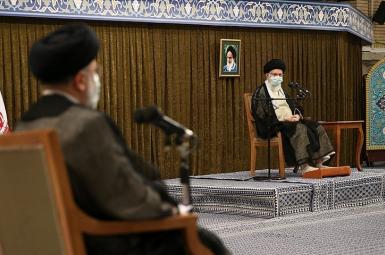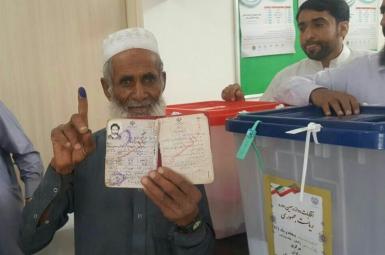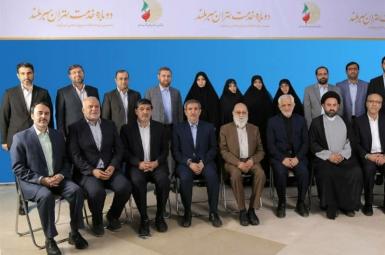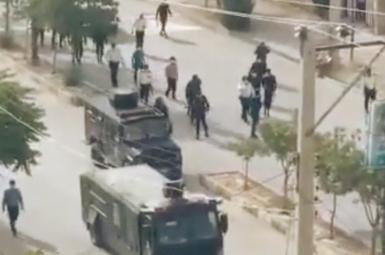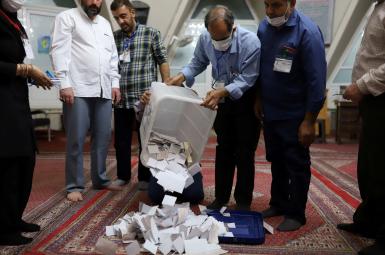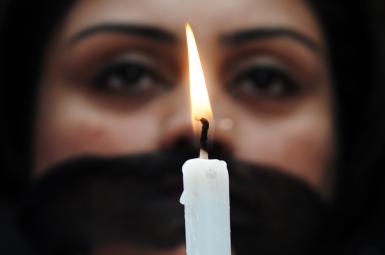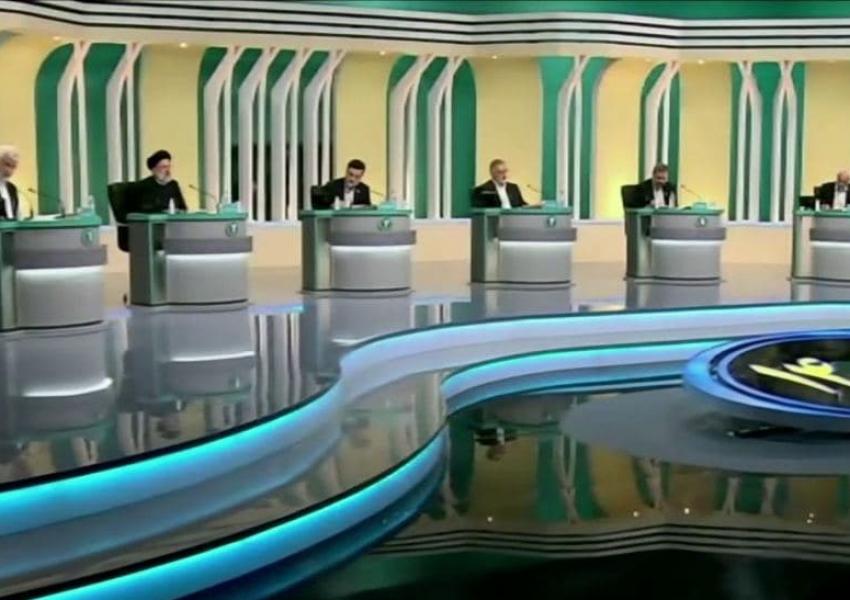
Iran Voters Not Impressed By Heavily Controlled Presidential Debate
The seven candidates endorsed by the Islamic Republic to run in the June 18 controversial presidential election failed to impress the voters in Saturday's televised debate, partly due to their own weaknesses and partly because of restrictions imposed by Supreme Leader Ali Khamenei and the state TV operating under his direct supervision.
Most of those who have watched the three-hour long program and spoke out were shocked by the candidates' shrewdness in exposing each other's weaknesses and the accusations and counteraccusations traded during the debate.
Reza Haqiqatnezhad, a journalist with a large social media following, said the candidates accused each other of being illiterate, holding fabricated diplomas, and “they were not good speakers, their performance was full of failures, they had supported or been implicated in financial corruption, they were not fit to run for president, they lied about their background, they outrageously insulted each other and levelled accusations against each other.” The journalist further opined that "They were the true embodiments of the regime's characteristics.”
Reformist analyst Sadegh Zibakalam tweeted: "Five government-chosen candidates wanted to clear the regime of its responsibility for the country's current catastrophic situation and merely blame the Rouhani administration for all the problems. The two other candidates, wanted to cautiously say that the Rouhani administration is the outcome of the same regime that has created the current situation with its revolutionary policies during the past 42 years."
Meanwhile, some noted the privileges granted to Judiciary Chief Ebrahim Raeesi (Raisi) who appears to be the favorite candidate of Khamenei and hardliners. Ali Ghanavati, a political activist in Iran noted that the state TV granted Raeesi a special privilege by not turning off his microphone at the end of the time slots allocated to him.
He added that Raeesi was the only candidate who was given the special spot directly facing the camera, being able to impress the viewers. Ghanavati also accused the state TV of adding some echoing effect to Raeesi's voice to lend him authority.
Most viewers felt let down by the candidates as almost none of the seven election hopefuls including the five hardliners and two proreform candidates offered any details about their plans.
In a commentary entitled "This is not a debate" the official news agency IRNA that speaks for the Rouhani administration wrote on Sunday that in a real debate and in the interest of fairness, the candidates should have answered the same set of questions so that the voters could judge their abilities. During the debate, each candidate was asked a different pre-prepared question.
Meanwhile IRNA criticized the state TV for the way the program was presented. It charged that the anchor's presence was useless, and that the television could have instead used a robot to do the same.
IRNA said that the next debates which are about social, cultural and political matters are also unlikely to attract any interest on the part of viewers, or to have a positive impact on the election turnout if they are presented in the same way.
In another commentary on the same day, IRNA observed that the questions were carefully chosen in a way not to give an opportunity to the candidates to talk about the sanctions and the coronavirus pandemic. The reason for this could be Khamenei's advice about not discussing foreign policy during the debates.
IRNA quoted analyst Reza Nasri as having said that the two key topics were deliberately omitted. He said: "Trump's maximum pressure policy caused a $200 billion loss for Iran. Why should a debate on the country's economic situation not include the most unprecedented and most violent economic warfare against Iran?"
The agency also quoted citizens and experts as having described the state TV's behavior as "strange, non-professional, weak and debatable."
Meanwhile, IRNA's commentary stressed that that the state TV has lost its impartiality many years ago. The agency suggested that the debates should instead be aired on the Internet rather than on the state television.
